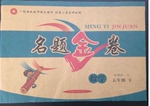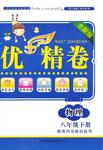题目内容
The painter mostly ________ realistic painting methods, but also used some folk and traditional Chinese painting techniques.
A. acquired B. adopted
C. absorbed D. approved
B
【解析】
试题分析:考查动词词义辨析。A.获得;B.采用;C.吸收,专注于;D.批准,赞同。句意:这位画家几乎采用了现实主义画风,但是也用了一些民间和传统的中国画的技巧。故选B
考点:考查动词词义辨析

练习册系列答案
 名题金卷系列答案
名题金卷系列答案 优加精卷系列答案
优加精卷系列答案
相关题目